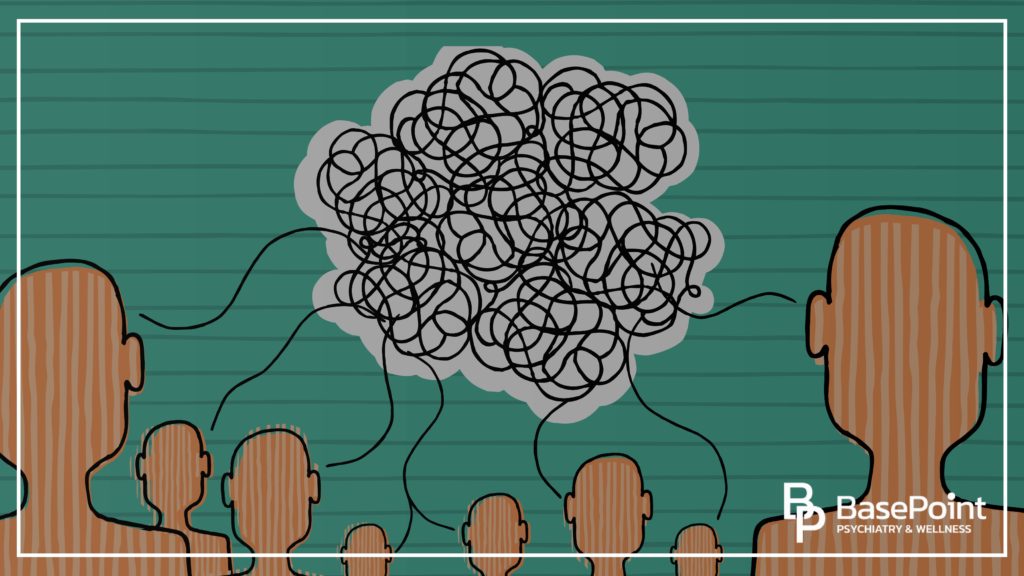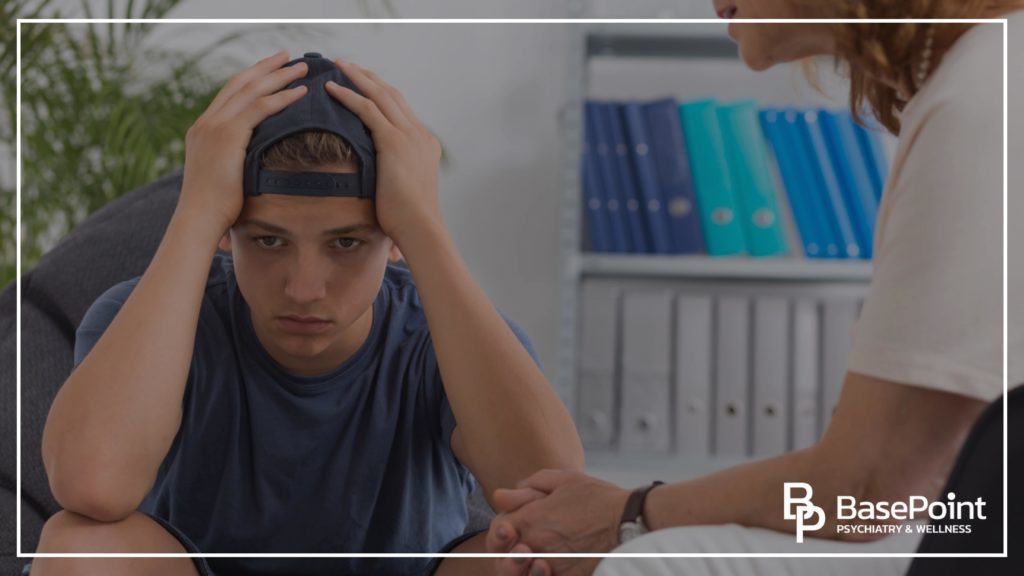Table of Contents
Depression in teen girls can sometimes present itself differently than in teen boys. This can result from upbringing or the pressures of society and gender identity. Even now, as our society is changing its views on gender roles, it can create depressive disorders as teens figure out their place in the world. We previously explored what depression in teen boys looks like. Now, we venture into how depression affects the average teenage girl.
What Does Depression In Teens Look Like?
Depression in teens can look the same as for the adults in their lives. They may isolate, become moody, and sleep patterns shift. Causes for depression in teens can include:
- Academic pressure
- Peer pressure
- Brain chemistry
- Major life changes
- Traumatic experiences
- Inherited traits
- Hormonal changes
- Learned negative thinking
While it doesn’t seem like these would cause a difference between boys and girls, they can.
How Does Depression Differ For Girls?
Depression in girls can vary based on hormone influxes. While boys also experience hormone influxes, the hormones involved can be different. Teen girls are menstruating also creates hormone changes that teen boys won’t experience. Girls are likelier to experience bouts of sadness and cry over the slightest things. They may not seem serious to you, but at the moment, they are crushing.
Like boys, girls are not “supposed” to show certain emotions. If they lash out in anger, they are being “dramatic.” If they cry, they are “overly emotional.” You see the pattern that develops! Who wants to express themselves to their closest persons when their emotions are invalidated?

Effective Treatments For Teen Depression
Fortunately, there are effective treatments for teen depression for boys and girls. These treatments look the same but can be personalized for individual experiences. These treatments include:
- Partial hospitalization
- Cognitive-behavioral therapy
- Medications
Partial Hospitalization
Partial hospitalization is for teens who need extra assistance with their mental health. They spend their days in our facilities and have a day full of treatment. They go to group therapies, individual psychotherapy, and medication management. They spend the evenings at home with their families and practice what they have learned there.
Cognitive Behavioral Therapy
Cognitive-behavioral therapy is an effective tool for reframing negative thought patterns. This is where they identify the ways of thinking that have been harmful to their mental health. Then they learn how to change their thinking. This is also where they learn how to identify their emotions, express them in a healthy way, and cope with them.

Pharmacological Solutions
For some teens, medications help manage the symptoms of their depression. Medications that are used in conjunction with therapy are the most effective solutions. In some cases, a teen can eventually wean off medications as they successfully use the tools we teach them.
You Can Help Your Teen Girl At Home
You don’t have to rely solely on a medical team to help your teen get through depression. Families who try together can overcome serious obstacles. If you feel helpless, include some family therapy so you can all be on the same page. However, at home, you need to have some pleasant family activities that help with bonding. These activities include:
- Outdoor activities – hiking, camping, bicycle riding, swimming
- Family fun activities – bowling, roller skating, mini-golf
- Family game night – board or card games
- Family movie night – go out or stay in
- Chip in with a chore – is their closet insane? Offer to help them out, so they aren’t overwhelmed. Pro-tip, leave them in charge of how it is done.
- Cook dinner together
- Join/play a sport together
- workout/go to the gym together
- Family Music Night – play music from your era and theirs and learn the dance crazes
How BasePoint Academy Can Help You
BasePoint Academy, strategically located in Arlington, Forney, and McKinney, TX, is easily accessible from Dallas and Fort Worth. As a trusted leader in adolescent mental health treatment, we address behavioral and mental health disorders that impede a teenager’s progression towards a balanced, fulfilling life. Our wide range of services includes counseling, therapy, and tailor-made treatment programs for teen behavioral health. We acknowledge the financial implications of seeking high-quality mental health care and thus accept health insurance and offer flexible payment plans. Committed to supporting academic pursuits, we provide Intensive Outpatient (IOP) and Partial Hospitalization Programs (PHP), ensuring treatment aligns with educational commitments.
At BasePoint Academy, our brand voice resonates with professionalism, information, and persuasion, underpinned by our expertise and passion for mental health treatment. We harness the power of storytelling, expert testimonials, emotive language, and descriptive phrases to communicate our credibility and the uniqueness of our programs. Clear headings further underline the effectiveness of our offerings. In line with our commitment to remain an accessible mental health partner, we offer free mental health assessments for teens. Our overarching goal at BasePoint Academy extends beyond treating symptoms; we’re dedicated to empowering teens to navigate the challenges of adolescence and blossom into the best versions of themselves.


